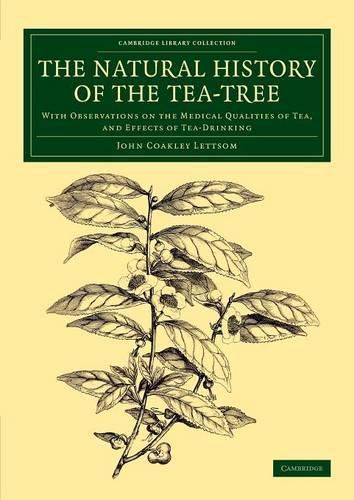Readings Newsletter
Become a Readings Member to make your shopping experience even easier.
Sign in or sign up for free!
You’re not far away from qualifying for FREE standard shipping within Australia
You’ve qualified for FREE standard shipping within Australia
The cart is loading…






This treatise on the tea bush and the consumption of tea was published in 1772 by John Coakley Lettsom (1744-1815), a physician and philanthropist, whose first action on inheriting his family plantation in 1767 was to free all its slaves. He practised medicine in London, and wrote on topics which he felt would benefit society. The book begins with a description of the plant, using the Linnaean system, discussing tea cultivation and harvesting in China, and the preparation of the leaves for use locally and abroad. In Part II, Lettsom turns to the medical uses of tea, lamenting that so little scientific evidence exists for either its beneficent or its malign properties. After performing various experiments and considering the physical and social consequences of tea-drinking, he concludes that it should be avoided, because its enervating effects lead to weakness and effeminacy, advice which mostly fell on deaf ears.
$9.00 standard shipping within Australia
FREE standard shipping within Australia for orders over $100.00
Express & International shipping calculated at checkout
This treatise on the tea bush and the consumption of tea was published in 1772 by John Coakley Lettsom (1744-1815), a physician and philanthropist, whose first action on inheriting his family plantation in 1767 was to free all its slaves. He practised medicine in London, and wrote on topics which he felt would benefit society. The book begins with a description of the plant, using the Linnaean system, discussing tea cultivation and harvesting in China, and the preparation of the leaves for use locally and abroad. In Part II, Lettsom turns to the medical uses of tea, lamenting that so little scientific evidence exists for either its beneficent or its malign properties. After performing various experiments and considering the physical and social consequences of tea-drinking, he concludes that it should be avoided, because its enervating effects lead to weakness and effeminacy, advice which mostly fell on deaf ears.